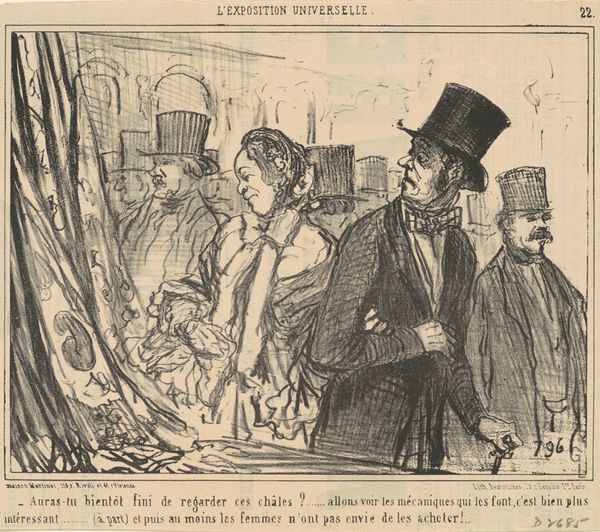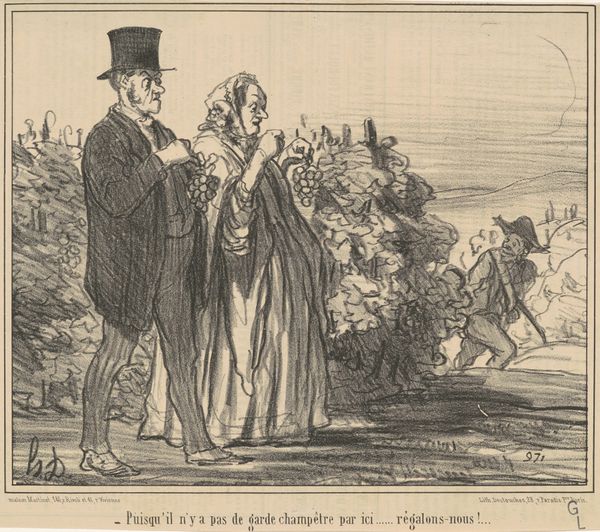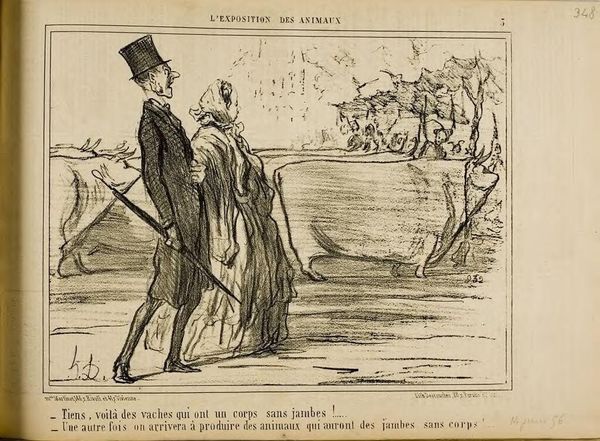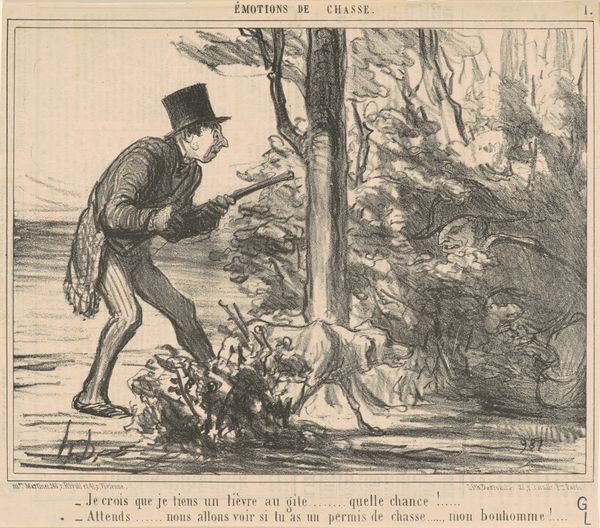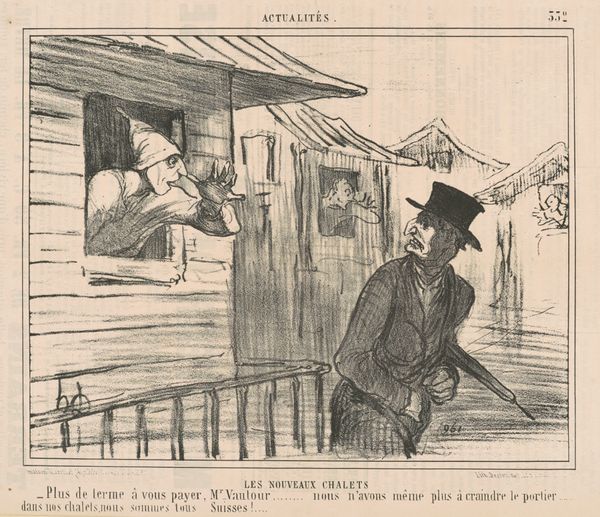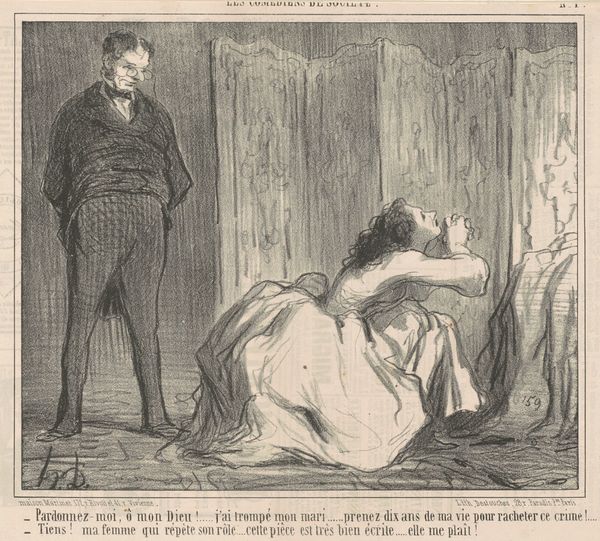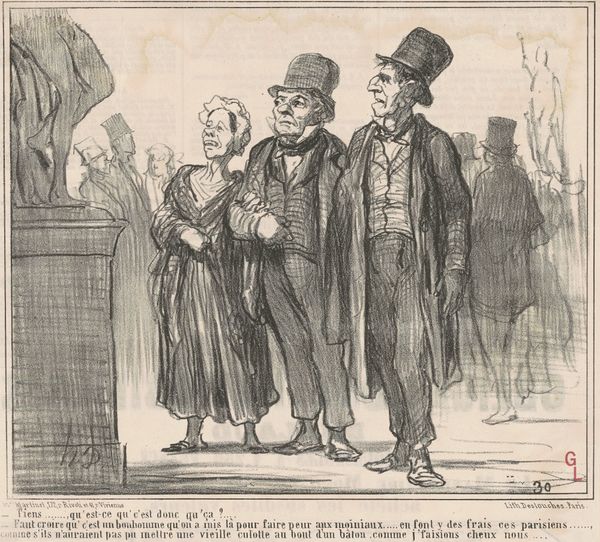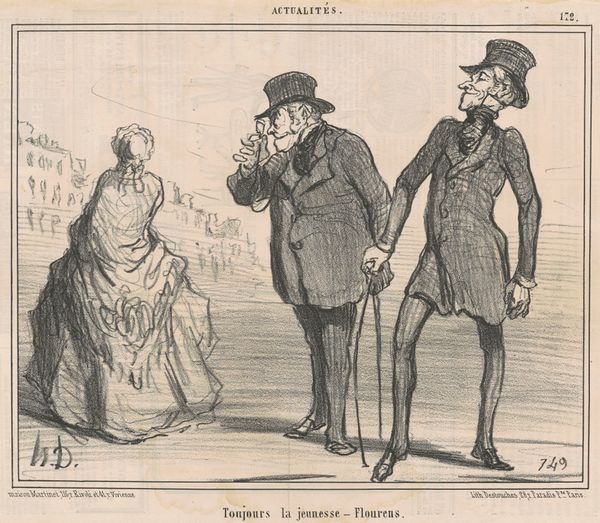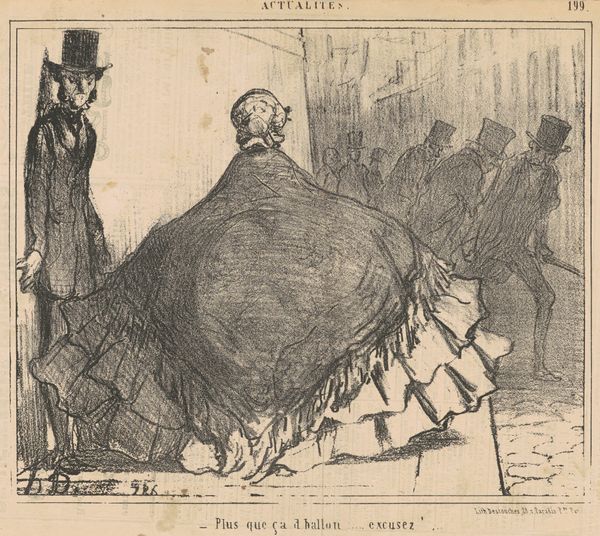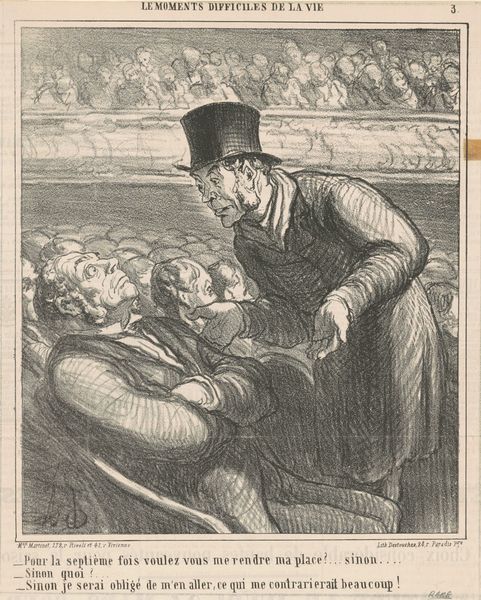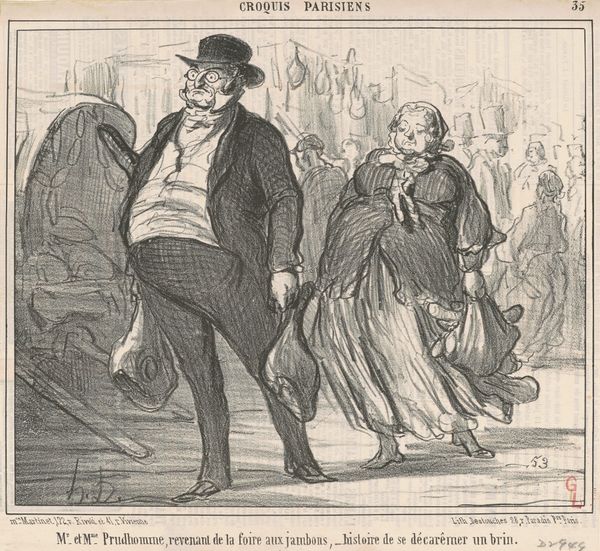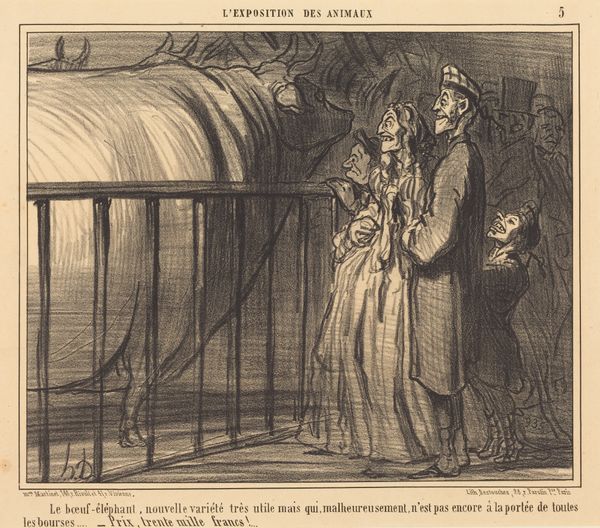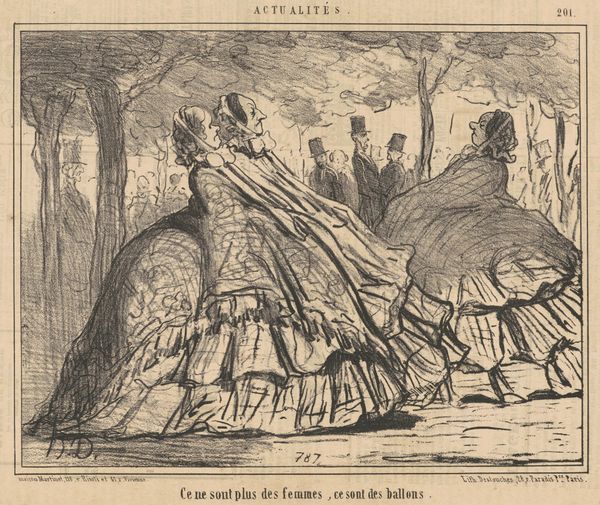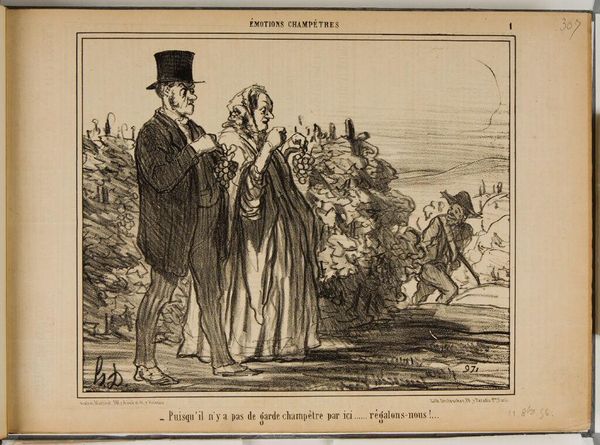
lithograph, print
#
lithograph
# print
#
caricature
#
figuration
#
romanticism
#
genre-painting
#
realism
Copyright: National Gallery of Art: CC0 1.0
Editor: Here we have Honoré Daumier’s lithograph, “J’aimerais autant voir un ouragan...” from around the 19th century. It depicts a woman with a gigantic dress and a man looking none too pleased. I’m struck by the clear disdain in the man's posture, contrasted against the absurd scale of the woman's dress. What's your take on this? Curator: It’s crucial to understand Daumier's position as a social critic. He used lithography, a relatively inexpensive medium, to reach a wide audience. In this piece, think about what the crinoline represents. It wasn't just fashion; it was a status symbol, a display of wealth and leisure during a time of increasing social inequality. Editor: So the crinoline represents social excess? Curator: Precisely! And note the man's exasperated expression. Daumier is likely critiquing the old guard's resistance to the shifting social landscape of the 19th century, particularly regarding conspicuous consumption. Does the environment around them give you any further clues? Editor: It seems overgrown, almost chaotic. Is that a deliberate choice, perhaps suggesting a world overwhelmed by these extravagant displays? Curator: Yes! The uncontrolled nature reflects the man's own sense of being overwhelmed, perhaps even displaced by these changing social norms. How might viewers have reacted to this in its time? Editor: I imagine this cartoon might have triggered a knowing chuckle among those feeling similarly suffocated by social expectations and inequality. I hadn't really thought about fashion as such a strong political statement. Curator: Daumier excelled at turning everyday observations into potent critiques, revealing the social undercurrents of Parisian life. Hopefully you will have a good understanding of the complex meanings woven into this seemingly simple image.
Comments
No comments
Be the first to comment and join the conversation on the ultimate creative platform.
